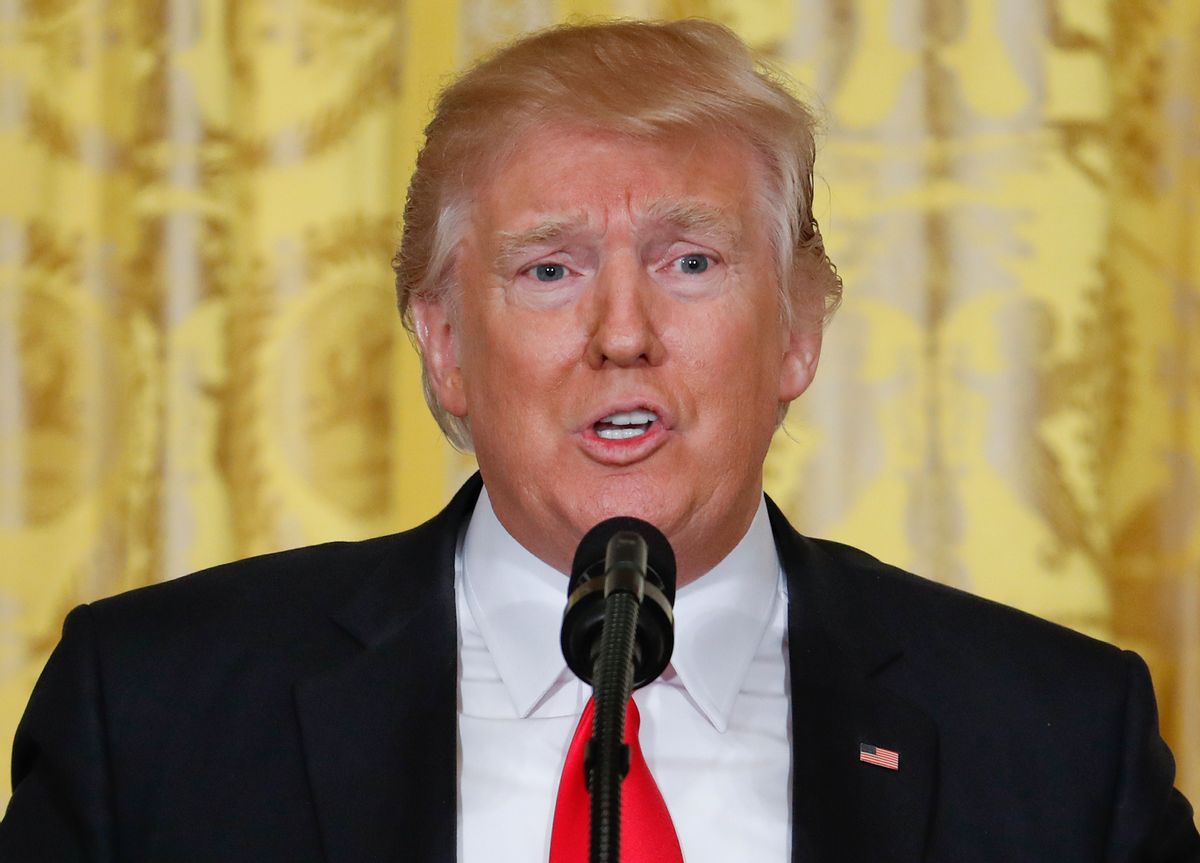Right now, the only force in American government that’s stopping Donald Trump’s excesses is the federal judiciary, as seen in decisions by a half-dozen different benches concluding his travel ban from Muslim countries was unconstitutional. But that line of defense could crumble, and is certainly poised to change under this White House, because Trump is positioned to fill more federal court vacancies than any past president since the late 1950s, according to legal analysts.
“The fact that we have so many of these vacancies right now is due to the fact for the past two years the Senate [GOP] majority refused to do anything for the consideration of not only [Supreme Court nominee] Merrick Garland, but also the lower court nominations,” said Lena Zwarensteyn, American Constitution Society for Law and Policy director of strategic engagement. “This leaves us in the unfortunate position that we are in, with 14 percent of the federal judiciary bring vacant.”
“Certainly, Trump has an opportunity to fill these vacancies,” she continued. “But I think it is going to be incumbent upon everyone to be paying close attention to not only who he is nominating to the Supreme Court, but to the district court and circuit courts of appeals that are really the courts where a majority of people’s lives are affected by the decisions that are made there.”
Besides the open Supreme Court seat that Republicans, led by Senate Majority Leader Mitch McConnell, refused to act on during Obama's last year in office, there are currently 112 vacancies across the federal bench. President Obama made 54 nominations to those seats that Republicans refused to confirm, including several dozen where they never held a final vote. In short, the GOP mounted a judicial coup.
“Obama had 54 pending nominees—nominees that had been named publicly but got to varying points in the process but had their nominations expire on January 3rd because of inaction,” said Zwarensteyn. “Of the 54 nominees, 25 nominees were simply waiting for their second floor vote. So it could have taken only a few moments for the Senate to have given their final up-or-down vote. There were eight nominees who were waiting to be reported out of committee, again something that takes very little time in the executive business meetings that the Senate Judiciary Committee holds. And then 21 nominees were waiting for confirmation hearings—some for well over a year.”
In addition to these vacancies, there are also large number of federal judges age 70 or older, who are likely to retire in the next few years. Taken together, the federal judgeships overtly stolen by the GOP from Obama and the pending retirements, means that Trump is positioned to reshape the court in a manner not seen in several generations.
“The Senate in the last two years only confirmed 22 Article Three [federal] judges,” Zwarensteyn said. “The last time a number of judicial confirmations was that low in the last two years of a presidency, you have to go back to [President Dwight] Eisenhower and he had 44 judicial confirmations and that was at a time when the federal judiciary and the population generally was significantly lower. So they really hit a low mark there.”
“It’s also really telling whose confirmations expired,” she continued. “To President Obama’s credit, he did a significant amount of work to make sure that the bench was diversified demographically as with professional experience… Of those 54 nominees that were pending, a significant majority would have broken barriers to some extent, whether they were a public defender, the first Asian-Pacific American, for example, in the Texas District Courts… the first African-American woman to serve on the Third Circuit, you would have had even possibly the first Muslim to serve on the federal courts as well.”
It goes without saying there is little chance that Trump’s appointments will follow Obama’s template, given his overwhelmingly white male cabinet. If anything, it appears that Trump will only appoint those most willing to rubber-stamp presidential and congressional actions, given his continuing pejorative remarks slamming federal judges who have voided his immigration orders as unconstitutional.
Just consider this diatribe from Thursday’s press conference where Trump attacked judges who drew the line on his sloppily written immigration ban on travelers from seven Muslim countries.
“The court system has not made it easy for us,” Trump said. “And [we] are even creating a new office in Homeland Security dedicated to the forgotten American victims of illegal immigrant violence, which there are many. We have taken decisive action to keep radical Islamic terrorists out of our country. Though parts of our necessary and constitutional actions were blocked by a judge's—in my opinion incorrect and unsafe—ruling, our administration is working night and day to keep you safe, including reporters safe, and is vigorously defending this lawful order.”
People may pay particular attention to the Supreme Court, but it only hears about 75 cases a year. In contrast, federal appeals courts receive 55,000 filings annually and district courts receive about 400,000 lawsuits and complaints annually. This is where most of the controversies in business and civil rights get settled, and where the difference between more progressive and conservative views matter, on issues ranging from voting rights to government regulations to consumers' ability to counter corporate excess.
“The Supreme Court is really important, but so are the other federal court appointments.” said Zwarensteyn. “They’re the ones that are often finding facts that are really important for the dispensation of justice. It’s really important that people pay attention to who is on the bench. It can really make a difference, whether the courthouse door will be open to everybody, or whether they are opening it a little bit wider for those corporate interests.”
But right now, the president most openly hostile to federal courts in decades is poised to appoint more judges than any president in a half-century—including the dozens of seats stolen the GOP stole from his predecessor.


Shares